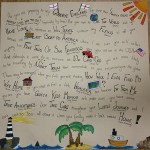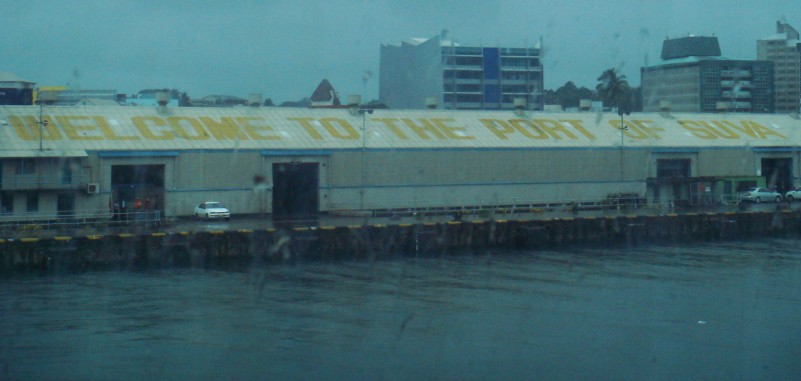
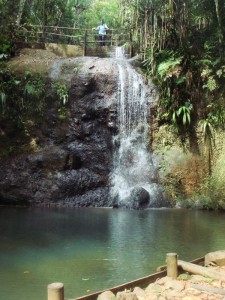 It was raining when we arrived in Suva. The sky may have been overcast and grey but the welcome at the port was warm with many greetings of ‘Bula!‘, a local word meaning all of ‘Hello’, ‘Cheers’ and ‘Life’.
It was raining when we arrived in Suva. The sky may have been overcast and grey but the welcome at the port was warm with many greetings of ‘Bula!‘, a local word meaning all of ‘Hello’, ‘Cheers’ and ‘Life’.
In the morning, we decided to take a trip to the Colo-i-Suva Rainforest Park, a short trip out of town, where we had heard talk of waterfall-fed swimming pools (one of which had been used as a film location for the awful film Anaconda 2: The Hunt for the Blood Orchid). Intrigued, we hopped on a bus and passed colourful houses, washing lines and friendly people waving from the roadside on our way into the hills. 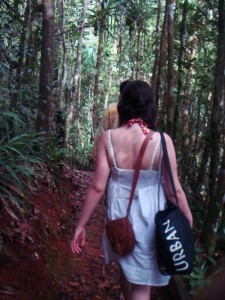 The walk to the pool took about half an hour and passed through the wet and humid forest, which was originally a mahogany plantation that was subsequently allowed to regrow with native trees, creating a unique (for the region) contrast between the canopy and the lower layers. The reserve was also full of vetao trees, which the local women use to dye their hair, and pandanus trees, which yield a very strong bark that can be used to make canoes, as well as rope from the leaves. It was also eerily quiet in the forest, except for clusters of noisy insects, and we didn’t see much in the way of wildlife except for the odd frog.
The walk to the pool took about half an hour and passed through the wet and humid forest, which was originally a mahogany plantation that was subsequently allowed to regrow with native trees, creating a unique (for the region) contrast between the canopy and the lower layers. The reserve was also full of vetao trees, which the local women use to dye their hair, and pandanus trees, which yield a very strong bark that can be used to make canoes, as well as rope from the leaves. It was also eerily quiet in the forest, except for clusters of noisy insects, and we didn’t see much in the way of wildlife except for the odd frog.
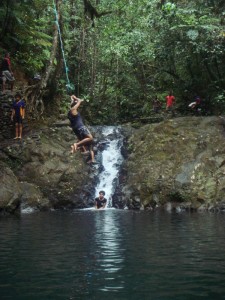 Eventually, we came across one of the river-fed pools where some local teenagers were hanging out, climbing trees and making impressively high jumps into the pool from a rope swing. After a quick change behind a rock, I jumped into the murky, cold pool, feeling a chilled rush which made my skin tingle. The river must have been fed from an underground spring because it reminded me of freshwater swimming in the Malvern Hills or ‘Silent Pool’ in England.
Eventually, we came across one of the river-fed pools where some local teenagers were hanging out, climbing trees and making impressively high jumps into the pool from a rope swing. After a quick change behind a rock, I jumped into the murky, cold pool, feeling a chilled rush which made my skin tingle. The river must have been fed from an underground spring because it reminded me of freshwater swimming in the Malvern Hills or ‘Silent Pool’ in England. 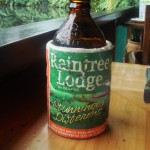 The walk back to the roadside was much more bearable after a cold dip, and we had time for some pineapple cake, tea and mango juice in the nearby Rainforest Eco Lodge, which is situated next to a beautiful lake.
The walk back to the roadside was much more bearable after a cold dip, and we had time for some pineapple cake, tea and mango juice in the nearby Rainforest Eco Lodge, which is situated next to a beautiful lake.
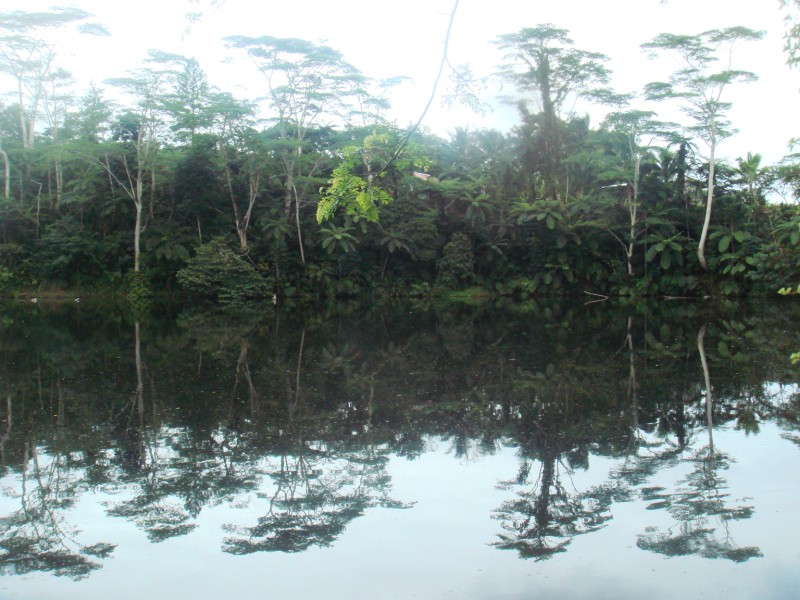 Back in town, the contrast to where we had just been could not have been more pronounced. Suva is a corporate town which has embraced built up offices, shopping
Back in town, the contrast to where we had just been could not have been more pronounced. Suva is a corporate town which has embraced built up offices, shopping 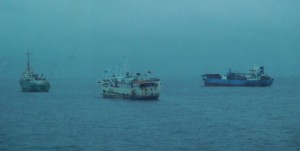 centres and, strangely, barbed-wire clad mobile phone empires but it is also known for its organised crime targeting tourists. In the main town, many people dressed in suits were entering or exiting large air conditioned buildings while others were hanging out on the streets, traipsing large black sacks of fake pearl and wooden goods around. Fiji itself has undergone three military coups since 1987, and the political situation is tense with a standoff between the indigenous Fijians and the large Indo-Fijian population. In 2009, the country was ejected from the Commonwealth for failing to hold elections, and every time elections are held they appear to be by quota, so that representation is largely along ethnic lines.
centres and, strangely, barbed-wire clad mobile phone empires but it is also known for its organised crime targeting tourists. In the main town, many people dressed in suits were entering or exiting large air conditioned buildings while others were hanging out on the streets, traipsing large black sacks of fake pearl and wooden goods around. Fiji itself has undergone three military coups since 1987, and the political situation is tense with a standoff between the indigenous Fijians and the large Indo-Fijian population. In 2009, the country was ejected from the Commonwealth for failing to hold elections, and every time elections are held they appear to be by quota, so that representation is largely along ethnic lines.

